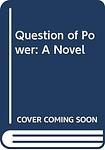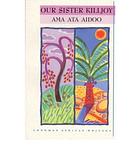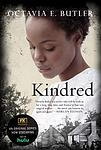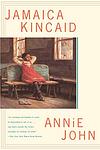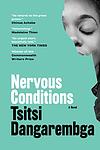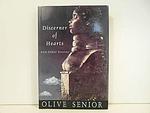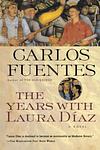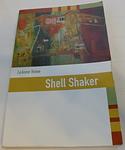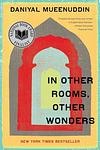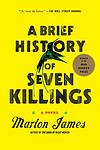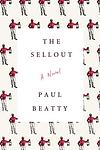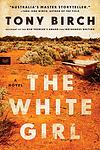This is the Canon: Decolonize Your Bookshelves in 50 Books
This is one of the 300 lists we use to generate our main The Greatest Books list.
-
Love In A Fallen City by Eileen Chang
"Love in a Fallen City" is a collection of novellas and short stories that delve into the complexities of love, betrayal, and societal expectations in mid-20th century China. The stories primarily focus on women navigating the challenging terrain of romance and marriage in a rapidly changing society. The titular story captures the tumultuous relationship between a divorced woman and a playboy against the backdrop of World War II, exploring themes of survival, traditional values, and personal transformation. Through elegant prose and deep psychological insight, the book portrays the collision of Eastern and Western cultures and the personal struggles of individuals caught in the throes of historical upheaval.
-
All about H. Hatterr by G. V. Desani
This novel is a unique blend of Eastern philosophy and Western literary technique, following the adventures of its protagonist, a British-educated Indian everyman, as he navigates the complexities of life. The narrative is filled with humor, satire, and linguistic playfulness, as the protagonist interacts with various eccentric characters and experiences numerous absurd situations. The book is a critique of both British colonialism and traditional Indian society, offering a distinctive and insightful perspective on the human condition.
-
Thousand Cranes by Yasunari Kawabata
"Thousand Cranes" is a story set in post-war Japan, revolving around the life of a young man who is entangled in a complex relationship with three women. These women are linked to his deceased father and a shared tea ceremony set, symbolizing the cultural and generational tensions that exist. The narrative explores themes of love, loneliness, tradition, and the haunting burden of the past.
-
The Lost Steps by Alejo Carpentier
The novel tells the story of a disillusioned American musicologist who leaves his life in New York City to embark on a journey to an untouched, primitive part of the Amazon jungle in South America. He is in search of ancient musical instruments. Along the way, he experiences a spiritual and philosophical transformation as he reconnects with nature and the primal roots of humanity. He also falls in love with a native woman, further deepening his connection to the land and its people.
-
The Lonely Londoners by Sam Selvon
"The Lonely Londoners" is a novel that explores the lives of a group of West Indian immigrants living in London during the 1950s. The narrative follows the characters as they navigate the challenges of racism, poverty, and isolation in a new and unfamiliar environment. Despite their hardships, the characters also experience moments of camaraderie and humor, providing a nuanced portrayal of the immigrant experience.
-
Things Fall Apart by Chinua Achebe
This novel explores the life of Okonkwo, a respected warrior in the Umuofia clan of the Igbo tribe in Nigeria during the late 1800s. Okonkwo's world is disrupted by the arrival of European missionaries and the subsequent clash of cultures. The story examines the effects of colonialism on African societies, the clash between tradition and change, and the struggle between individual and society. Despite his efforts to resist the changes, Okonkwo's life, like his society, falls apart.
-
Children Of The New World by Assia Djebar
"Children of the New World" explores the impact of the Algerian War of Independence on Algerian society through the lens of a small village. The narrative delves into the lives of various villagers as they navigate the complexities of national identity, colonial oppression, and the struggle for liberation. Through a blend of personal stories and broader socio-political commentary, the book paints a vivid picture of a community caught between traditional values and the tumultuous forces of revolutionary change, highlighting the roles and experiences of both men and women in the fight for freedom.
-
Wide Sargasso Sea by Jean Rhys
This novel is a postcolonial prequel to "Jane Eyre," exploring the life of Mr. Rochester's mad wife, Bertha. Set in Jamaica during the 1830s, it follows the story of Antoinette Cosway, a white Creole heiress, from her youth in the Caribbean to her unhappy marriage and move to England. Caught in a society that both rejects and exoticizes her, Antoinette is ultimately driven into madness by her oppressive husband and the haunting legacy of colonialism.
-
A Grain Of Wheat by Ngugi wa Thiong'o
"A Grain of Wheat" is a historical novel set in Kenya during the Mau Mau uprising against British colonial rule. The story follows a diverse cast of characters whose lives are intertwined by secrets, betrayals, and sacrifices. As Kenya prepares for independence, the book explores themes of nationalism, identity, and the complex aftermath of revolution. Through vivid storytelling, the author delves into the complexities of human nature and the struggle for freedom in a turbulent time.
-
The Beautyful Ones are Not Yet Born by Ayi K. Armah
The novel explores the life of a railway clerk in Ghana who refuses to accept the corruption that is rife in his society. Despite his family's struggles with poverty, he remains steadfast in his moral convictions, rejecting the easy path of bribery and deception. The protagonist's integrity contrasts sharply with the greed and materialism of his peers, providing a stark commentary on post-colonial African society. The book is a powerful critique of corruption and a testament to the strength of individual integrity.
-
The Bridge Of Beyond by Simone Schwarz-Bart
This novel is an evocative portrayal of several generations of women in Guadeloupe, a tapestry of their joys, sufferings, and resilient spirits against the backdrop of post-slavery Caribbean society. The story centers on the life of Telumee, the last in a line of proud Lougandor women, as she navigates the complexities of love, poverty, and the lingering effects of colonialism. Rich in Creole culture, the narrative weaves together the supernatural with the everyday, creating a lyrical and poignant exploration of the enduring human spirit and the bonds of family, tradition, and heritage that shape our destinies.
-
A Question of Power by Bessie Head
"A Question of Power" explores the life of Elizabeth, a mixed-race South African woman who moves to a village in Botswana to escape the apartheid regime of her home country. The novel delves into her struggle with mental illness, as she experiences vivid, often terrifying hallucinations. These episodes are deeply symbolic, reflecting her internal battles with power, gender, race, and colonialism. The narrative provides a profound examination of the human psyche and the impact of social and political oppression on mental health.
-
If Beale Street Could Talk by James Baldwin
The novel is a poignant exploration of love and racial injustice, set in 1970s Harlem. It follows the story of a young African-American couple, Tish and Fonny, whose dreams for a future together are shattered when Fonny is falsely accused of rape. As Fonny languishes in jail, Tish, pregnant with their child, and her family fight tirelessly to prove his innocence. Through a narrative that weaves past and present, the book delves into the couple's deep bond, the systemic oppression they face, and the resilience of the human spirit in the face of a deeply flawed justice system.
-
Between Two Worlds by Miriam Tlali
"Between Two Worlds" is a compelling narrative that explores the harsh realities of apartheid in South Africa through the eyes of its protagonist, Muriel. The story delves into Muriel's life as she navigates the oppressive societal structures that enforce racial segregation and discrimination. Working in a Johannesburg store, she encounters a microcosm of apartheid's broader societal impacts, including the complexities of interracial relationships and the struggle for dignity and identity amidst pervasive racism. The novel poignantly captures the personal and political conflicts faced by those trapped between the traditional and the modern, the rural and the urban, in a time of profound injustice.
-
Woman at Point Zero by Nawal El Saadawi
"Woman at Point Zero" is a powerful novel about a woman named Firdaus who, after a life filled with hardships and abuse, finds herself on death row in an Egyptian prison. The narrative explores her life story, from her childhood of poverty and genital mutilation to her experiences with domestic violence, prostitution, and finally murder. Through her journey, the book offers a profound critique of patriarchal society and the systemic oppression of women.
-
Our Sister Killjoy by Ama Ata Aidoo
This novel explores the journey of a young African woman who travels to Europe on a scholarship, only to confront the stark realities of neocolonialism and the African diaspora's experiences in the West. Through her eyes, readers are exposed to themes of identity, alienation, and the complexities of cultural assimilation. The protagonist's observations and interactions challenge the romanticized views of Europe, offering a critical examination of the impacts of colonialism and the ongoing struggle for self-definition and autonomy among Africans both at home and abroad. The narrative is a poignant critique of postcolonial society, delivered through a blend of prose and poetry that captures the protagonist's internal and external conflicts.
-
Territory Of Light by Yuko Tsushima
"Territory of Light" follows the story of a young woman navigating life in Tokyo after separating from her husband. Over the course of a year, she grapples with the challenges of single motherhood, her evolving identity, and the quest for independence, all while living in an apartment bathed in disconcertingly bright light. The novel poignantly captures her emotional landscape as she experiences moments of joy, the trials of raising a child alone, and the struggle to find peace and a sense of home in her new reality.
-
Kindred by Octavia E. Butler
"Kindred" is a gripping and thought-provoking novel that follows the life of Dana, a young African American woman living in the 1970s. Suddenly, she finds herself inexplicably transported back in time to the early 19th century, where she becomes entangled in the lives of her ancestors, who are enslaved on a plantation. As Dana navigates the brutal realities of slavery, she grapples with her own identity, the complexities of race, and the enduring legacy of the past. With its powerful storytelling and exploration of the connections between past and present, "Kindred" is a profound examination of history, race, and the enduring resilience of the human spirit.
-
The Joys Of Motherhood by Buchi Emecheta
"The Joys of Motherhood" is a poignant and powerful novel that explores the life of Nnu Ego, a Nigerian woman who struggles to find fulfillment and happiness in the traditional role of motherhood. Set against the backdrop of colonial Nigeria, the story delves into themes of gender inequality, cultural expectations, and the sacrifices mothers make for their children. Through Nnu Ego's experiences, the author offers a thought-provoking examination of the complexities and contradictions of motherhood in a rapidly changing society.
-
So Long a Letter by Mariama Bâ
"So Long a Letter" is an epistolary novel that explores the life of a recently widowed woman in Senegal. Throughout the story, she reflects on her life, her marriage, her husband's second, younger wife, and the status of women in Senegalese society. The book delves into themes of polygamy, friendship, and the struggle for women's rights in a predominantly patriarchal society. It is a poignant examination of the personal and cultural conflicts faced by women in post-colonial Africa.
-
The Color Purple by Alice Walker
Set in the early 20th century, the novel is an epistolary tale of a young African-American woman named Celie, living in the South. She faces constant abuse and hardship, first from her father and then from her husband. The story unfolds through her letters written to God and her sister Nettie, revealing her emotional journey from oppression to self-discovery and independence, aided by her relationships with strong women around her. The narrative explores themes of racism, sexism, domestic violence, and the power of sisterhood and love.
-
Segu by Maryse Condé
"Segu" is a historical novel that delves into the lives of the Traore family, a noble lineage within the Bambara Empire of Segu (present-day Mali) during the late 18th and early 19th centuries. As the region faces the pressures of colonialism, the slave trade, and religious upheaval from both Islam and Christianity, the family members experience profound transformations in their personal identities and loyalties. Through their diverse and often conflicting paths, the novel explores the complex interplay of social, political, and cultural forces shaping West Africa during a period of intense turmoil and change.
-
Annie John by Jamaica Kincaid
The novel centers around the coming-of-age story of the protagonist, Annie John, in Antigua. Throughout her childhood and adolescence, she grapples with her complex relationship with her mother, her self-identity, and the colonial influence of the British on her island home. As she matures, her once close bond with her mother becomes strained, and she struggles with feelings of separation and independence. The narrative explores themes of colonialism, gender, and the complexities of mother-daughter relationships.
-
Beloved by Toni Morrison
This novel tells the story of a former African-American slave woman who, after escaping to Ohio, is haunted by the ghost of her deceased daughter. The protagonist is forced to confront her repressed memories and the horrific realities of her past, including the desperate act she committed to protect her children from a life of slavery. The narrative is a poignant exploration of the physical, emotional, and psychological scars inflicted by the institution of slavery, and the struggle for identity and self-acceptance in its aftermath.
-
Nervous Conditions by Tsitsi Dangarembga
"Nervous Conditions" is a semi-autobiographical novel set in colonial Rhodesia in the 1960s. The story follows a young girl from a poor family who gets the opportunity to receive an education after her brother's death. Despite the struggles she faces - including culture shock, racism, and the inherent sexism in both her native and adopted cultures - she perseveres and manages to succeed. The novel explores themes of race, colonialism, and gender through the lens of a young African woman's coming-of-age story.
-
Woman Hollering Creek by Sandra Cisneros
"Woman Hollering Creek" is a collection of short stories that explores the lives of various women from both Mexico and Mexican-American communities in Texas. The narratives delve into their personal, cultural, and emotional landscapes, highlighting the struggles and triumphs they face as they navigate the complexities of love, gender roles, and cultural identity. The title story, in particular, follows a young woman's journey from a stifling life in Mexico to an equally challenging existence in the United States, where she seeks liberation from an abusive relationship. Through vivid, poignant storytelling, the book captures the nuances of transition and the essence of resilience.
-
Texaco by Patrick Chamoiseau
The novel is an epic narrative that weaves together the history of Martinique from the time of slavery to the post-colonial era through the eyes of a resilient woman named Marie-Sophie Laborieux. The story unfolds as she recounts her life and the lives of her ancestors to a visiting urban planner, revealing the transformation of her homeland and the struggles of its people. The book blends Creole and French language, magical realism, and rich storytelling to paint a vivid picture of the island's cultural tapestry, the legacy of colonialism, and the enduring spirit of its inhabitants.
-
Breath, Eyes, Memory by Edwidge Danticat
The novel is a poignant story of a young Haitian girl's journey from her homeland to New York City. She is sent to live with her mother, whom she barely knows, at the age of twelve. The narrative explores the protagonist's struggle to understand her Haitian identity, her mother's traumatic past, and the cultural expectations placed upon her as a woman. It delves into themes of maternal relationships, female identity, sexual trauma, and the diasporic experience, painting a vivid picture of the protagonist's struggle to reconcile her past with her present.
-
Discerner Of Hearts by Olive Senior
"Discerner of Hearts" is a collection of short stories that delve into the complexities of life in Jamaica, exploring themes of identity, tradition, and transformation. The stories are set against a backdrop of rich Jamaican landscapes and culture, capturing the unique blend of societal norms and the supernatural that characterize the local folklore. Through a variety of characters, from young children to old men and women, the narratives reveal the inner workings of human hearts and the external forces that shape personal destinies. The collection highlights the profound impact of heritage and the powerful role of the unseen in everyday life.
-
Salt by Earl Lovelace
The novel explores the life and struggles of Alford George, a man from the Caribbean island of Trinidad, as he seeks to define his identity and purpose beyond the colonial legacy and societal expectations. Through his journey, the book delves into themes of cultural heritage, personal freedom, and the quest for meaningful existence amidst the socio-political changes of post-colonial Trinidad. The narrative interweaves the stories of various community members, reflecting on how history, race, and politics shape individual lives and collective experiences.
-
The God of Small Things by Arundhati Roy
This novel is a poignant tale of fraternal twins, a boy and a girl, who navigate through their childhood in Kerala, India, amidst a backdrop of political unrest and societal norms. The story, set in 1969, explores the complexities of their family's history and the tragic events that shape their lives. Their mother's transgression of caste and societal norms by having an affair with an untouchable leads to disastrous consequences, revealing the oppressive nature of the caste system and the destructive power of forbidden love. The novel also delves into themes of postcolonial identity, gender roles, and the lingering effects of trauma.
-
Trumpet by Jackie Kay
"Trumpet" is a novel that explores the complexities of identity and love through the life of Joss Moody, a celebrated jazz trumpeter who, upon his death, is revealed to have been biologically female. The revelation shocks his public and his family, particularly his wife Millie, who had kept his secret for decades, and their son Colman, who feels betrayed and angry. The narrative delves into the perspectives of various characters, including a tabloid journalist eager to exploit the story, as they grapple with their memories of Joss and their own identities in light of the truth. The novel poignantly addresses themes of gender, secrecy, and the intricate dynamics of familial relationships.
-
The Years with Laura Diaz by Carlos Fuentes
"The Years with Laura Diaz" is a historical novel that centers around the life of a woman named Laura Diaz, a member of the Mexican upper class. The book explores the political and social changes in Mexico throughout the 20th century, as seen through Laura's eyes. Her journey includes a loveless marriage, a passionate affair, and a career as a photographer during the Mexican Revolution. The story weaves together personal, political, and cultural threads, creating a rich tapestry of Mexican history and the indomitable spirit of its women.
-
The Best Of Albert Wendt’s Short Stories by Albert Wendt
This collection showcases a selection of short stories by a prominent Pacific writer, offering a vivid portrayal of Samoan life and culture. Through a diverse range of narratives, the author explores themes of identity, family, and social change, weaving rich, evocative tales that capture the complexities of traditional and contemporary Pacific Island society. The stories provide a deep insight into the human condition, set against the backdrop of Samoa's lush landscapes and the broader context of the Pacific Islands, making it a compelling read for those interested in the region's literature and cultural heritage.
-
Monkey Beach by Eden Robinson
"Monkey Beach" is a captivating novel that explores the life of Lisamarie Hill, a young Haisla woman from Kitamaat, British Columbia, who is haunted by visions and the supernatural. The narrative weaves through her childhood and present-day struggles, as she deals with the mysterious disappearance of her beloved brother, Jimmy, at sea. Set against the backdrop of the lush Pacific Northwest, the story delves into themes of family, cultural heritage, and grief, while intertwining elements of Haisla folklore and the stark realities of indigenous life. As Lisa searches for answers about her brother's fate, she embarks on a transformative journey that forces her to confront her past and her identity.
-
The Emperor's Babe by Bernardine Evaristo
This novel tells the story of a young Sudanese girl, Zuleika, who is married off at the age of 11 to a rich, older Roman businessman in Londinium, 211 AD. Despite the luxuries her marriage affords her, Zuleika feels trapped and yearns for real love and freedom. The narrative takes a turn when she meets and falls in love with the Roman Emperor, a relationship that brings her joy but also puts her in grave danger. The book is a vivid portrayal of ancient Rome, with its mix of cultures, and explores themes of love, freedom, and the struggles of a woman in a patriarchal society.
-
Dogside Story by Patricia Grace
"Dogside Story" is set in a coastal Maori community in New Zealand, where the residents grapple with issues of tradition, identity, and change. The narrative revolves around the tensions between the local community and external forces, including government authorities and developers. Central to the story is the protagonist's struggle to uphold his family's honor while navigating the challenges of modern life and maintaining cultural heritage. The novel explores themes of kinship, community resilience, and the impact of colonization, providing a rich portrayal of Maori life and the complexities of maintaining ancestral connections in a changing world.
-
Shell Shaker by LeAnne Howe
"Shell Shaker" is a compelling narrative that intertwines the lives of two Choctaw families separated by centuries. The story oscillates between the 18th century, where Red Shoes, a respected leader, becomes embroiled in a murder that threatens to ignite war among the Choctaw, and the late 20th century, where his descendants grapple with a similar crisis of political intrigue and murder. The novel explores themes of power, betrayal, and redemption, weaving Choctaw history and spirituality through a multigenerational tale that reflects on the enduring impact of ancestry and the inextricable connections between the past and present.
-
The Kite Runner by Khaled Hosseini
This novel is a powerful story set against the backdrop of tumultuous events in Afghanistan, from the fall of the monarchy through the Soviet invasion and the rise of the Taliban regime. It follows the life of a wealthy boy and his best friend, a servant's son, their shared love for kite flying, and a terrible incident that tears their lives apart. The narrative explores themes of guilt, betrayal and redemption as the protagonist, now an adult living in America, is called back to his war-torn homeland to right the wrongs of his past.
-
Small Island by Andrea Levy
"Small Island" is a historical novel that explores the intertwined histories of Jamaica and the UK, as well as the themes of race, empire, and migration. The story is set in 1948 and is told from four different perspectives: two Jamaican immigrants, Hortense and Gilbert, who move to England after World War II, and an English couple, Queenie and Bernard. The narrative explores the racial tension, discrimination, and culture shock that the immigrants face in their new home, while also delving into the complexities of war, identity, and the British Empire.
-
Dancing In The Dark by Caryl Phillips
"Dancing in the Dark" delves into the complex life and career of Bert Williams, a pioneering black entertainer in early 20th-century America. The novel explores Williams' struggles with his racial identity and the societal pressures that come with it, as he performs in blackface to gain acceptance and success in the predominantly white entertainment industry. Through a poignant narrative, the book examines themes of race, performance, and the personal costs of compromise in a society divided by color lines, revealing the emotional and psychological toll of Williams' choices on his personal and professional life.
-
Half of a Yellow Sun by Chimamanda Ngozi Adichie
The novel is set in Nigeria during the Biafran War, exploring the impact of the conflict on the lives of its characters. The story is told from the perspective of three characters: a young houseboy, a radical university professor, and the professor's wealthy lover. The narrative delves into themes of love, race, and war, offering a vivid depiction of the horrors of conflict and the resilience of the human spirit.
-
The White Tiger by Aravind Adiga
"The White Tiger" is a darkly humorous novel set in modern-day India that explores the country's class struggle through the eyes of an ambitious and cunning protagonist. Born in a poor village, he moves to Delhi to work as a chauffeur for a rich family. He eventually breaks free from his life of servitude by committing an act of shocking violence, and uses his newfound freedom to become a successful entrepreneur in Bangalore. The story, told through a series of letters written to the Chinese Premier, is a scathing critique of India's social and economic disparities, and the corruption that permeates all levels of society.
-
In Other Rooms, Other Wonders by Daniyal Mueenuddin
"In Other Rooms, Other Wonders" is a collection of interconnected short stories that delve into the lives of various characters connected to a wealthy landowner in Punjab, Pakistan. The narrative spans different levels of society, from the landowner himself to his managers, servants, and peasants, weaving a tapestry of tales that reveal the complexities of power, influence, and relationships in Pakistani society. Each story explores themes of love, betrayal, and social mobility, offering a poignant look at the struggles and aspirations of individuals trying to navigate a world governed by tradition and changing socio-economic landscapes.
-
How To Read The Air by Dinaw Mengestu
The novel follows the journey of Jonas Woldemariam, a man who retraces the road trip his Ethiopian immigrant parents took from Peoria, Illinois, to Nashville, Tennessee, shortly after their arrival in America. As he embarks on this journey, Jonas weaves together his own personal narrative with the imagined experiences of his parents, attempting to understand their life and struggles as newcomers in a foreign land. The story delves into themes of identity, displacement, and the complexities of family relationships, all while exploring the ways in which we reconstruct our histories and seek connection through storytelling.
-
NW: A Novel by Zadie Smith
This novel follows the lives of four Londoners - Leah, Natalie, Felix, and Nathan - as they navigate adulthood in the diverse, vibrant, and sometimes volatile neighborhood where they grew up. The narrative explores themes of identity, class, friendship, and the complex nature of urban life, intertwining the characters' stories in a way that reflects the interconnectedness and fragmentation of city living.
-
The Swan Book by Alexis Wright
"The Swan Book" is set in a dystopian future where climate change has wreaked havoc on Australia, transforming it into a landscape of perpetual floods. The story centers around Oblivia Ethylene, a mute and traumatized Aboriginal girl who is found living in a wrecked ship grounded in a tree. She is taken under the wing of Bella Donna, a European woman who marries the first Aboriginal president of Australia. The narrative weaves elements of Aboriginal mythology, environmental disaster, and the political struggles of indigenous peoples, exploring themes of displacement, identity, and resilience.
-
A Brief History of Seven Killings by Marlon James
"A Brief History of Seven Killings" is a multi-voiced novel that explores the attempted assassination of a world-famous reggae singer and its aftermath. The narrative spans decades, starting from the turbulent 1970s in Jamaica through the crack wars in 1980s New York to the changing world of the 1990s. The story is told from the perspectives of various characters, including gangsters, journalists, and CIA agents, providing a complex and gritty insight into the violent underbelly of Jamaican politics and the far-reaching influence of the drug trade.
-
The Sellout by Paul Beatty
This satirical novel follows the story of an African-American man living in a small, agrarian town on the outskirts of Los Angeles. After his father's death, he attempts to reinstate slavery and segregation in his town as a means of creating a sense of identity for himself and his community. The novel explores themes of racial identity and equality in America, challenging societal norms and expectations through its provocative narrative.
-
The White Girl by Tony Birch
"The White Girl" is a poignant narrative that explores the struggles and resilience of an Aboriginal woman, Odette Brown, who is raising her spirited granddaughter, Sissy, in a small Australian town during the era of the oppressive Protection Acts. These laws grant the government control over the lives of Indigenous people. The story intensifies when a new, menacing local policeman threatens to remove Sissy from Odette's care, fearing that her heritage will lead her to a life of disadvantage. Determined to protect her granddaughter from being taken into state custody, Odette embarks on a desperate journey to secure Sissy's safety and preserve their familial bonds against the backdrop of systemic racism and discrimination.
This is the Canon(Book), 50 Books
This is from a book from Kadija Sesay, Deirdre Osborne, Joan Anim-Addo
The editors description is:
Upending our traditionally white-dominated 'to be read' piles, Joan Anim-Addo, Deirdre Osborne and Kadija Sesay push to the fore the voices and cultural perspectives that demand a place on everyone's shelves.
From literary giants such as Toni Morrison, Salman Rushdie and Chinua Achebe to recent Man Booker Prize winners Paul Beatty and Bernardine Evaristo, the novels recommended here are in turn haunting and lyrical; innovative and inspiring; edgy and poignant. They are books that reflect the wide and diverse experiences of people from around the world, of all backgrounds and all races. They are books that represent voices that have for too long been silenced or side-lined.
The description from the book's first 2 chapters:
Each title has been carefully chosen as a result of our commitment to diversify the traditional literary canon of novels and short stories available in the English language... It should be understood to mean this is a canon, neither replacing nor adding to what has existed previously, but one of many possible selections... Those who oppose or criticize the act of decolonization often fear contamination or a lowering of standards. To reassure readers, we are emphatically opposed to exalting books that are mediocre, or outside the possibility of literary success.
This list has a weight of 68%. To learn more about what this means please visit the Rankings page.
Here is a list of what is decreasing the importance of this list:
- Voters: 3-5 people voted
- List: criteria is not just "best/favorite"
If you think this is incorrect please e-mail us at [email protected].










